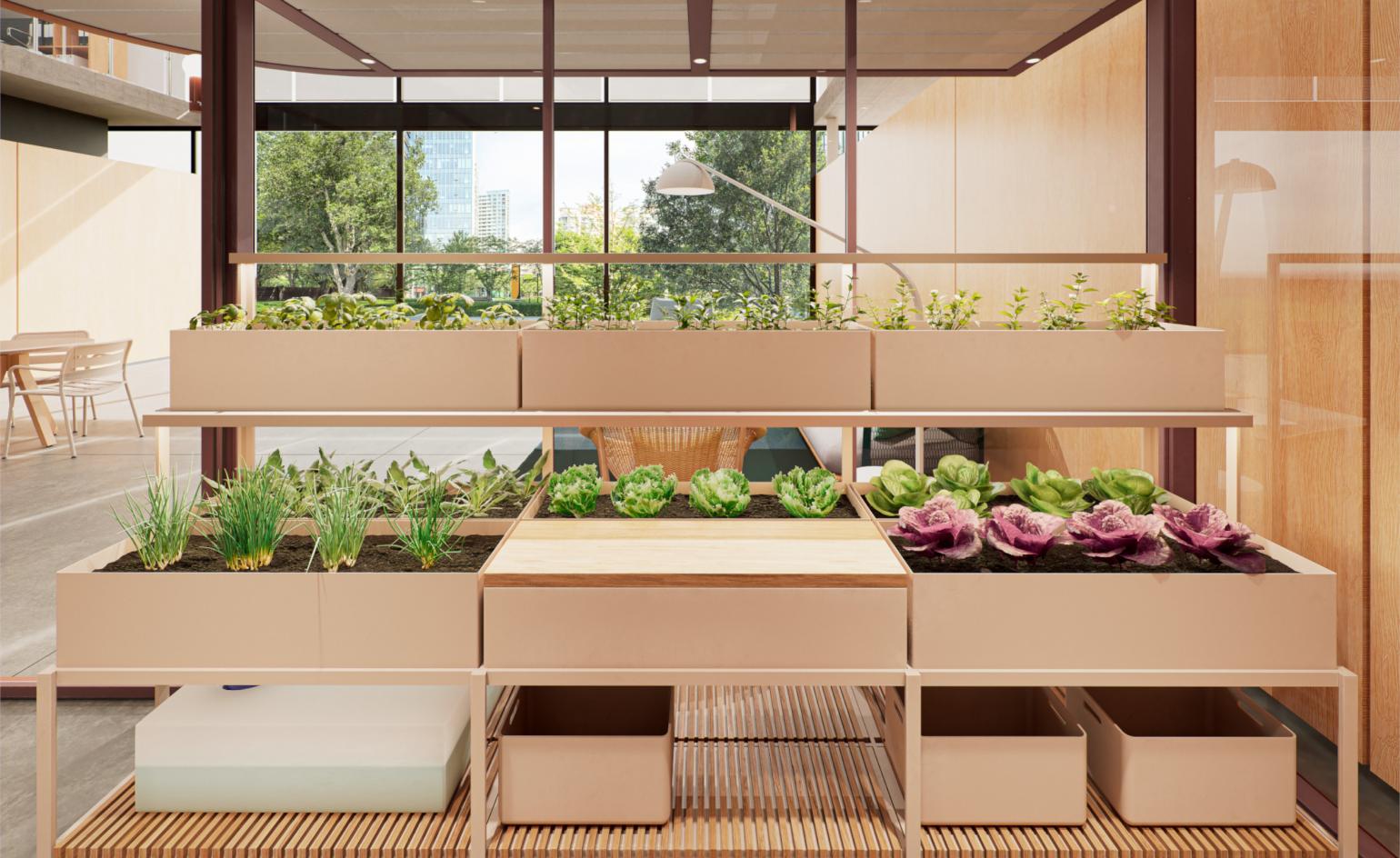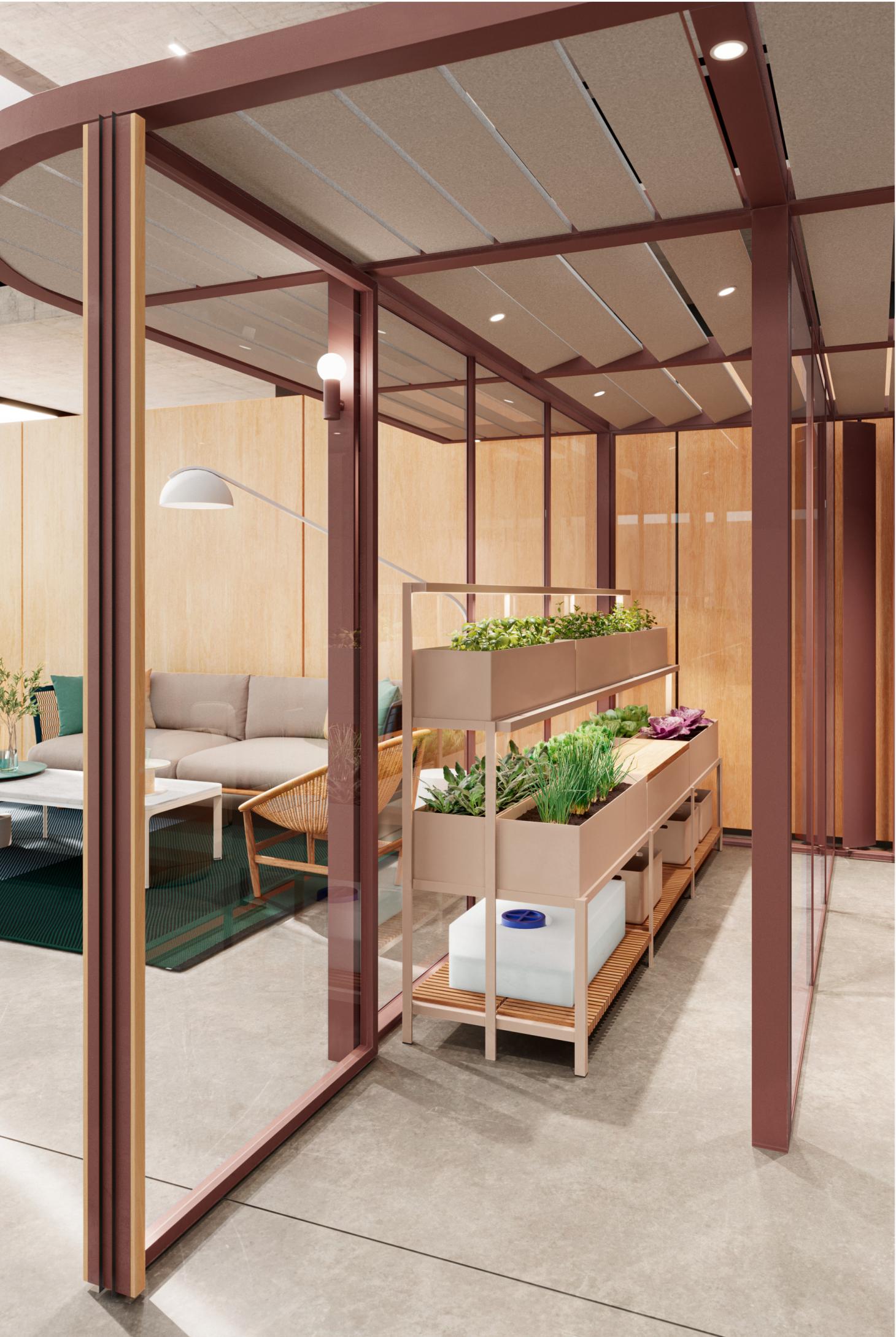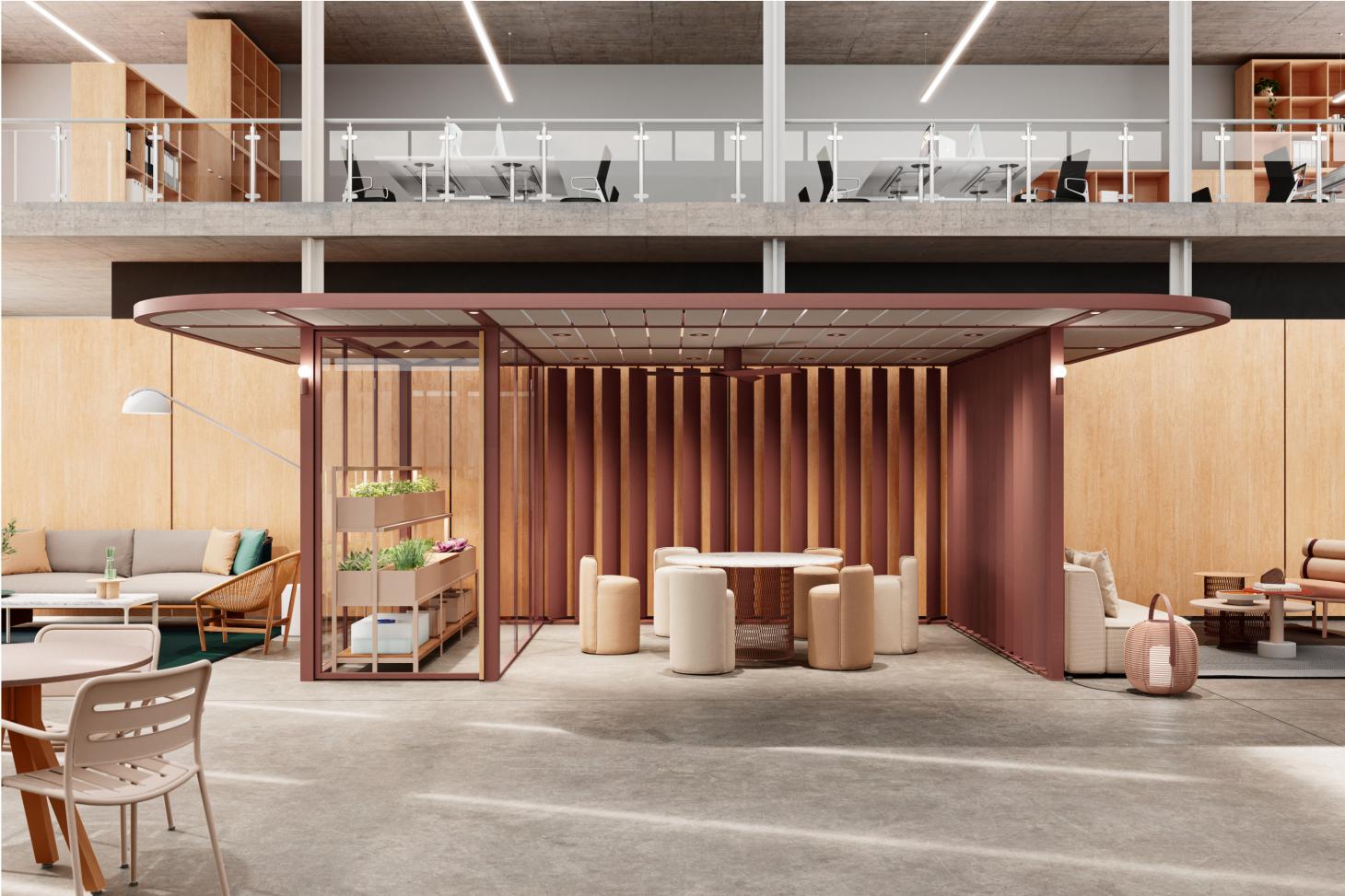Kettal and Tectum’s indoor hydroponic garden combats cabin fever with office-grown veg
Kettal and Tectum Garden’s hydroponic indoor garden offers new opportunities for home-grown veg and adds a sprinkle of greenery to office spaces

Receive our daily digest of inspiration, escapism and design stories from around the world direct to your inbox.
You are now subscribed
Your newsletter sign-up was successful
Want to add more newsletters?

Daily (Mon-Sun)
Daily Digest
Sign up for global news and reviews, a Wallpaper* take on architecture, design, art & culture, fashion & beauty, travel, tech, watches & jewellery and more.

Monthly, coming soon
The Rundown
A design-minded take on the world of style from Wallpaper* fashion features editor Jack Moss, from global runway shows to insider news and emerging trends.

Monthly, coming soon
The Design File
A closer look at the people and places shaping design, from inspiring interiors to exceptional products, in an expert edit by Wallpaper* global design director Hugo Macdonald.
In the climate crisis landscape, we seem to be experiencing a shift; sustainability is now a widely accepted necessity, we’ve stopped talking about single-use plastic and are realising ideas aimed at reducing (and undoing) our impact on the planet. We’re seeing aquaponic farming in cities, bridges made from manipulated vines, stone quarries turned into cultural spaces and houses designed to be overtaken by nature; these can all seem like grand gestures of sustainable innovation – gorgeous and important – but perhaps removed from what we can all hope to attain in our everyday lives.
Happily, Tectum Garden – recognising the cabin fever engendered in many of us by office life, the common craving for green oases, and the desire to reconnect to nature’s cycles – is facilitating a route back to the earth that we can all engage with. The Catalan company was founded in 2020 and, as the brainchild of the Sostenipra research group at the Autonomous University of Barcelona, creates products grounded in ecology. The group of urban agriculture specialists is looking to make farming more accessible and wants to bring about green cities as a firm reality, in which hydroponic gardens play a substantial role.
A hydroponic garden for the office

Now Spanish design brand Kettal has teamed up with Tectum Garden to bring hydroponic gardens – and locally grown veg – to the office. Kettal has explored modular office pavilions in recent years, and this new collaboration cleverly unifies minimalist design and real-world change.
The boxy structures that comprise the hydroponic gardens are made from recycled and recyclable materials, are compact, subtle and sit comfortably in interior spaces. A light substrate replaces soil in the indoor vegetable patches, making for easy management, and the plots are drip-fed water for maximum efficiency. Fertilisers are added to the water which, once nutrient-rich, is kept in the hydroponic cycle, reducing waste and allowing the structure to remain largely self-contained. The unit’s lighting can be adapted depending on the crop, giving way to a wider breadth of vegetational options.
The indoor gardens introduce a refreshing touch of greenery to indoor spaces and take an invested step towards altering our immediate environments, encouraging us to contribute to a circular green economy (and tempting us with freshly grown produce).

INFORMATION
Receive our daily digest of inspiration, escapism and design stories from around the world direct to your inbox.
Martha Elliott is the Junior Digital News Editor at Wallpaper*. After graduating from university she worked in arts-based behavioural therapy, then embarked on a career in journalism, joining Wallpaper* at the start of 2022. She reports on art, design and architecture, as well as covering regular news stories across all channels.